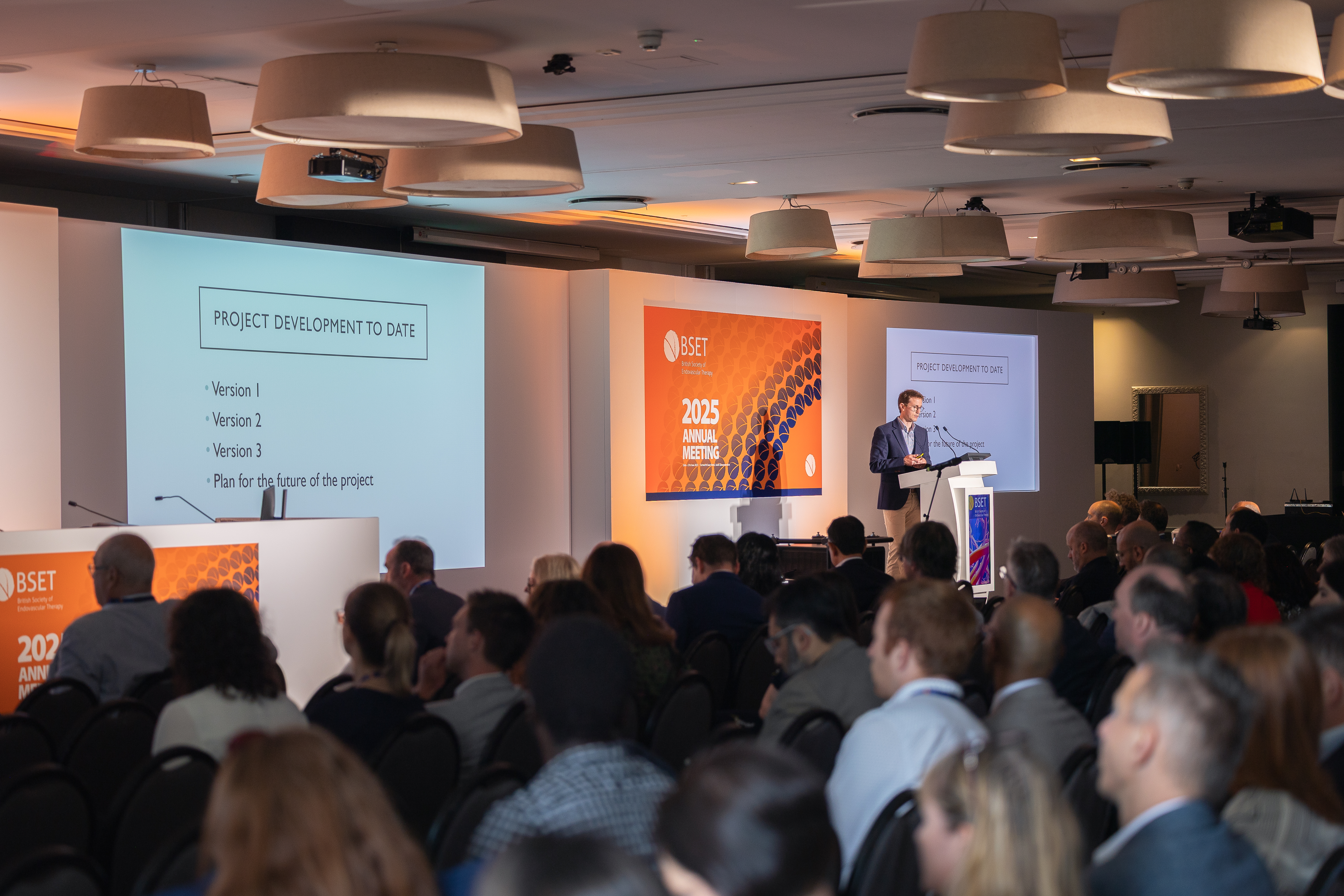• Raising the profile and impact of endovascular vascular research
• Developing the research leaders of the future
• Increasing investment in research activities and programmes of study through sustainable research funding streams.
RESEARCH PUMP PRIMING AWARD 2026
The application process for the BSET Pump Priming Award is now closed.
Congratulations to the recipients of the 2025 BSET Pump Priming Award!
Sarah Sillito of Freeman Hospital, Newcastle whose research is entitled BEACON Study – Beetroot Evaluation and Acceptability on Clinical Outcomes in lower limb eNdovascular intervention
Arsalan Wafi of Guy’s & St Thomas’ Hospital, London whose research is Personalised Prediction of Restenosis Risk Through Integrated IVUS-Based Computational Flow Dynamics and Microfluidic Flow System Experimentation
The Pump Priming award is to support a research project within the field of endovascular therapy. The award can be used for a stand-alone project, or to compliment an existing body of research which is either planned, or already underway.
We wish both Sarah and Arsalan well in their research and look forward to hearing the results of their work at the BSET Annual Meeting in 2026.
The recipients of the BSET Pump Priming Award for 2024 are
Mohamed Abdelhalim and James Budge
Mohamed’s research is on the effects of implanting aortic stent grafts on aortic stiffness and cardiac function at KCL.

James’ research will focus on developing and evaluating the face, content and construct validity of the St George’s Vascular Institute (SGVI) EndoSim V2.

BSET has supported new research evaluating long-term outcomes (>10 years) for FEVAR from GLOBALSTAR registry data (Global Collaborators on Advanced Stent-Graft Techniques for Aneurysm Repair).
The BSET-CLEVAR registry is a prospective, multi-centre, observational cohort study of patients treated with the GORE EXCLUDER Conformable AAA Endoprosthesis with ACTIVE CONTROL System (EXCC Device)
The primary objective of the registry is to collect real-world clinical data and device-specific outcomes of EXCC Device in routine clinical treatment of patients with abdominal aortic aneurysm (AAA)
BSET has undertaken a number of collaborative research projects which can be viewed below:
Systematic Review and Meta-analysis of the Effect of Internal Iliac Artery Exclusion for Patients Undergoing EVAR
Pragmatic minimum reporting standards for thoracic endovascular aortic repair
Early results of fenestrated endovascular repair of juxtarenal aortic aneurysms in the United Kingdom
Indications for fenestrated endovascular aneurysm repair
Pragmatic Minimum Reporting Standards for Endovascular Abdominal Aortic Aneurysm Repair
Global collaborators on advanced stent-graft techniques for aneurysm repair (GLOBALSTAR) project
Individuals wishing to circulate questionnaires or surveys to the BSET membership are requested to send the following to the BSET office:
- A one page summary of the research project and its use
- The lead name of the institution and contributors to the research
- Any conflicts of interest/external or industry funding
Those who request that their questionnaires/surveys be circulated to the membership are encouraged to submit the results for consideration as an abstract/poster at the BSET Annual Meeting.



